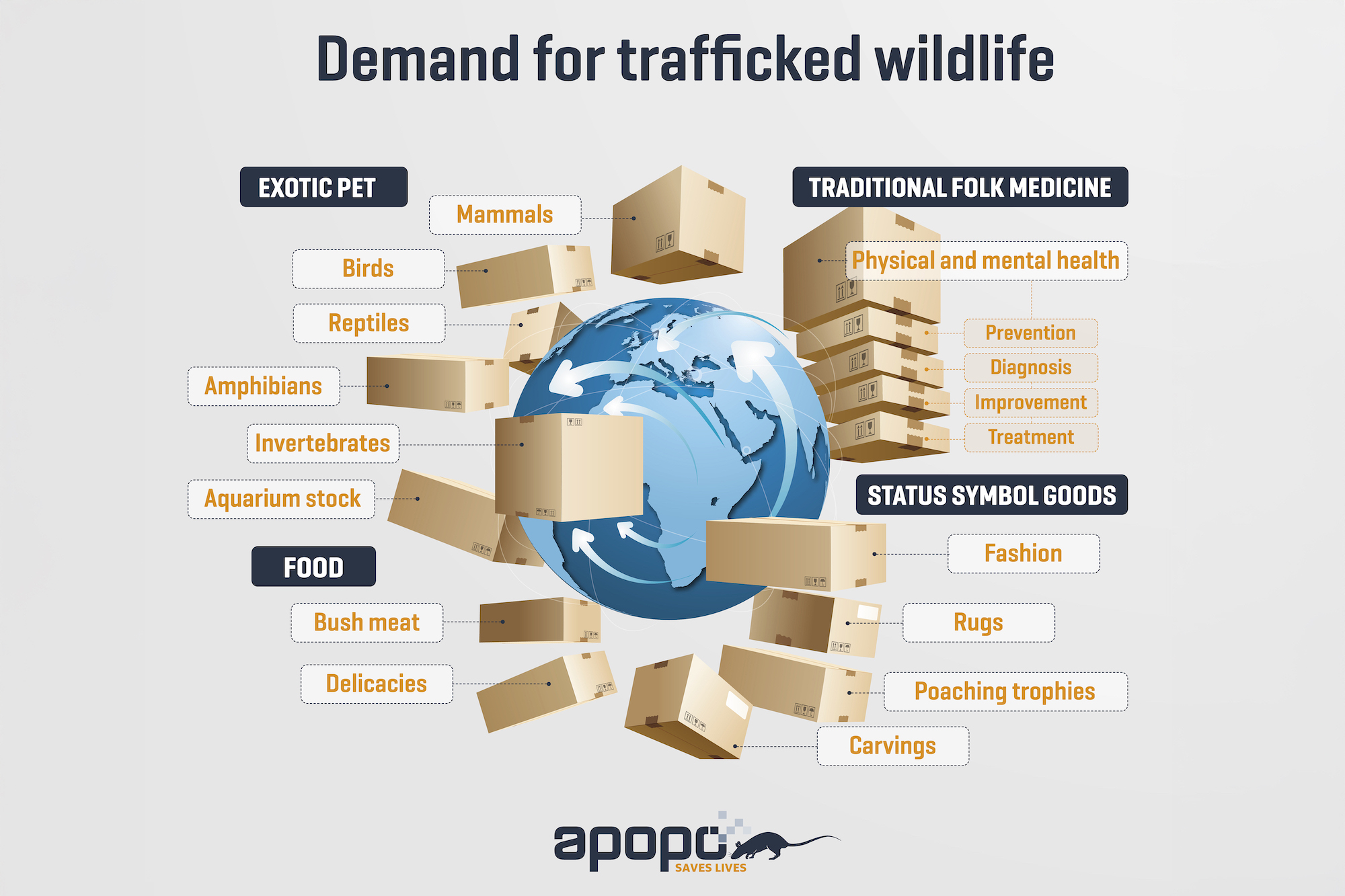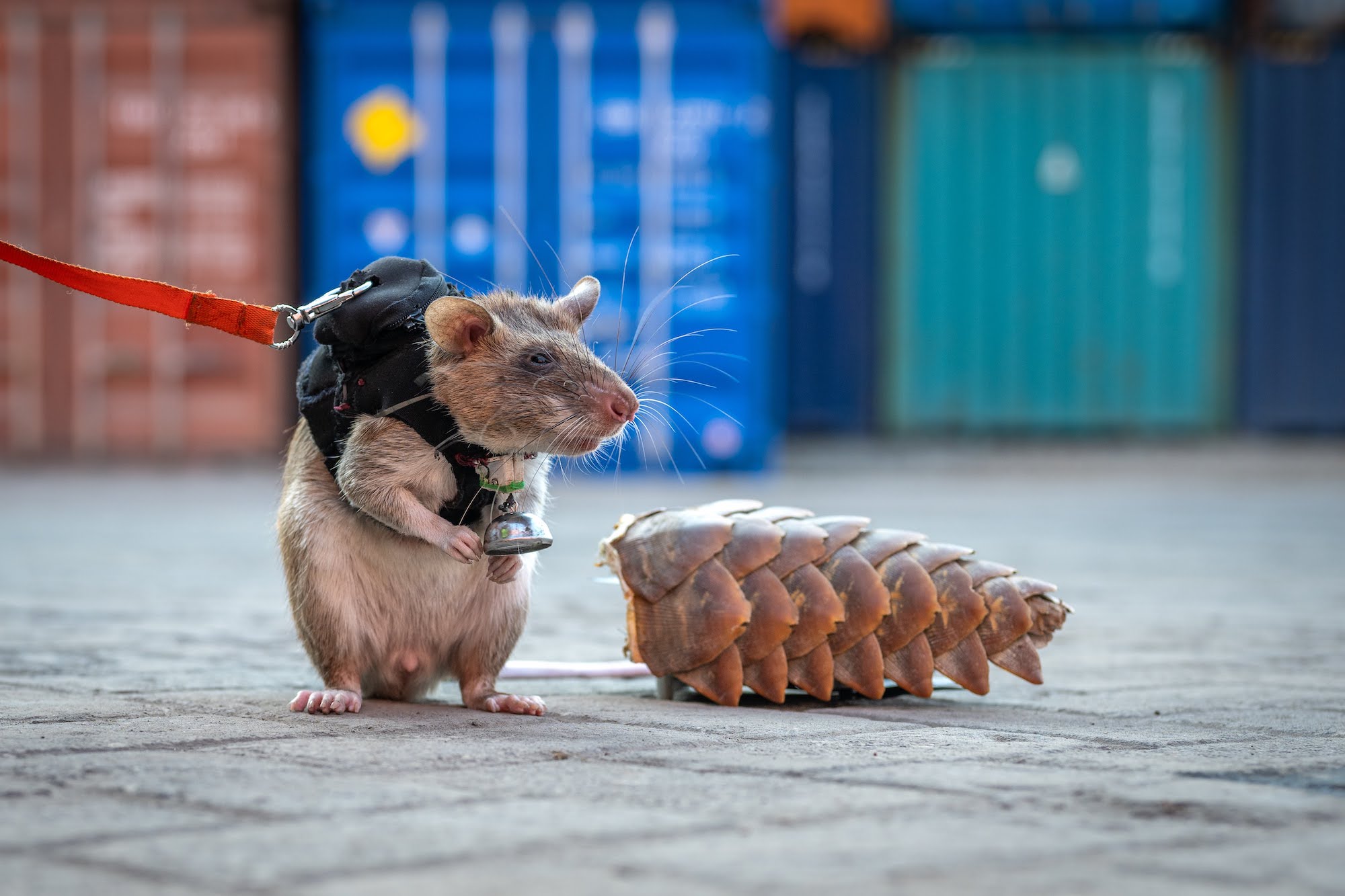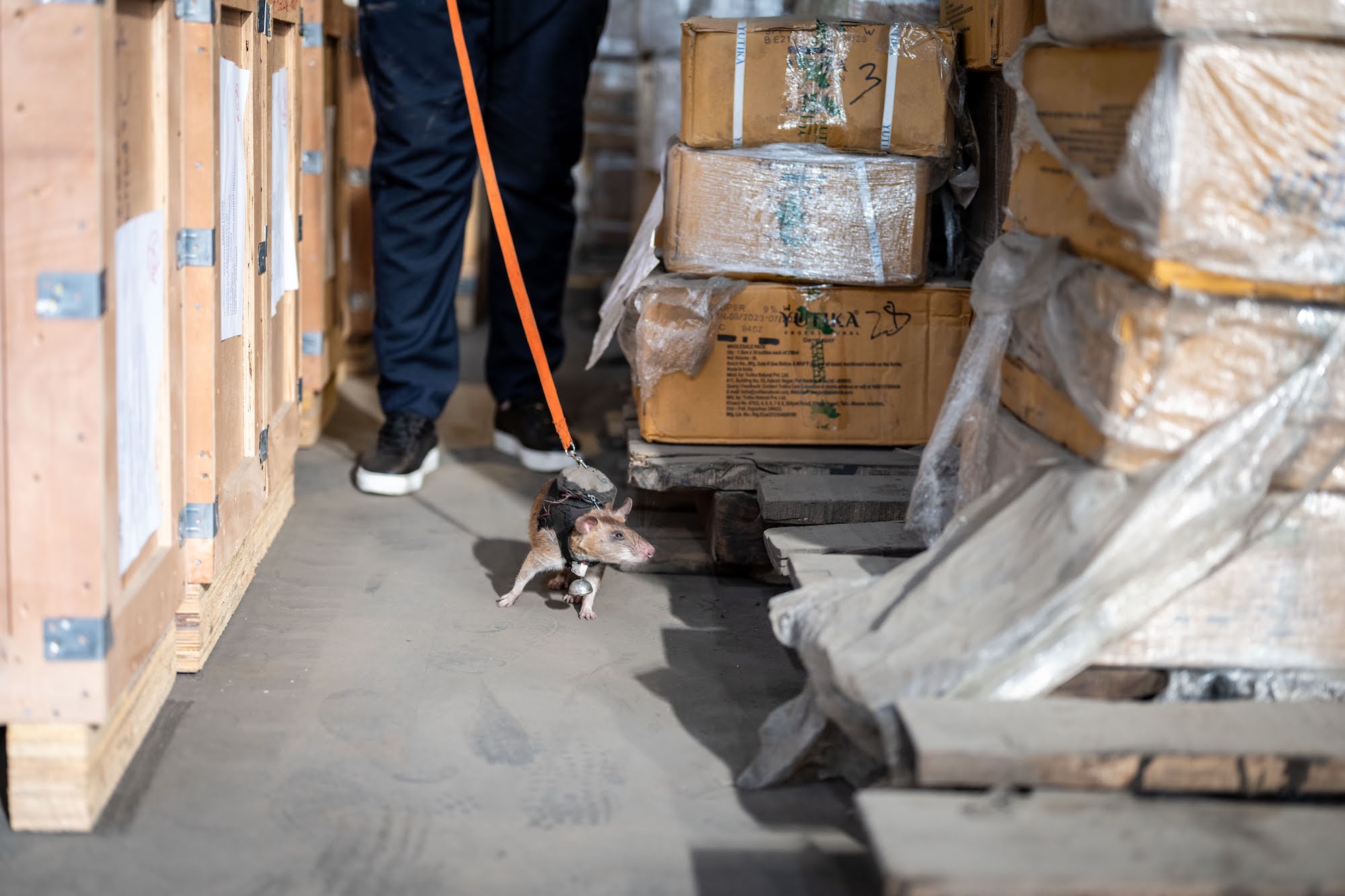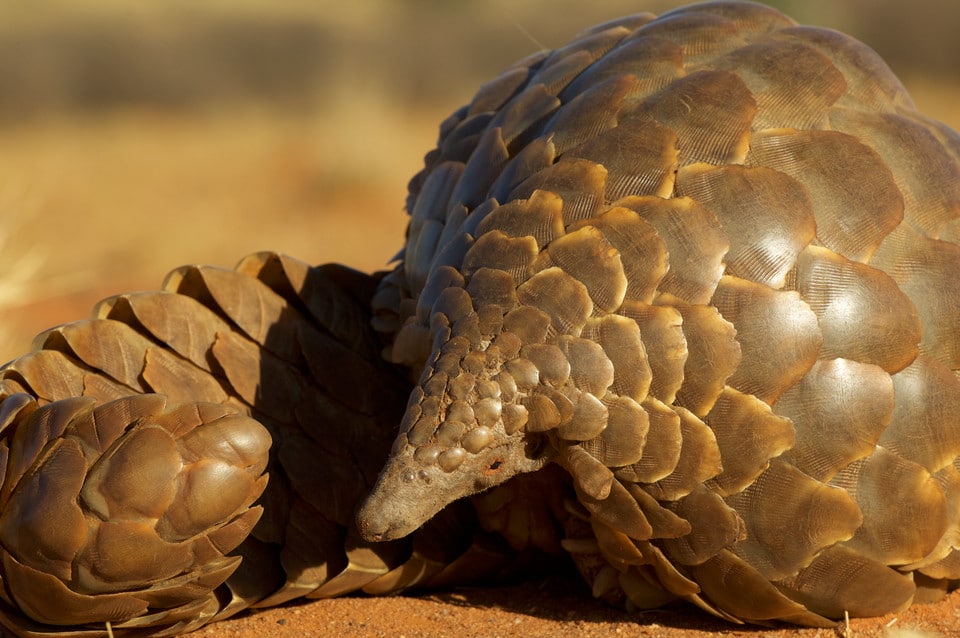The Global Crisis
Roughly one million plant and animal species are at risk of extinction due to human activities. Wildlife trafficking, the illegal taking and transportation of protected wildlife, and illegal timber harvesting contributes significantly to this. Wildlife trafficking is the fourth-largest criminal enterprise globally after drug, weapon, and human trafficking.


Our Impact
APOPO’s HeroRATs operate within international commercial ports in partnership with local authorities to detect trafficked wildlife. Currently, HeroRATs are trained to detect the scent of five different commonly trafficked wildlife products. These include pangolin scales, elephant ivory, rhinoceros horn, giraffe hide and hair, and African blackwood.
Target Scents
APOPO’s Wildlife detection rats are being trained to detect the scent of some of the world’s most heavily trafficked wildlife products. Each of these represents a serious threat to endangered species and biodiversity, driven by illegal trade, poaching, and high consumer demand. By identifying and intercepting these products, our rats help support global conservation efforts and disrupt wildlife trafficking networks.


Community impact of wildlife trafficking
Wildlife trafficking affects not only the ecosystems of native species’ natural habitat, but also the human communities within. The removal of wildlife from an area has serious repercussions in local economies, safety from local violence, and the development and spread of zoonotic disease.
